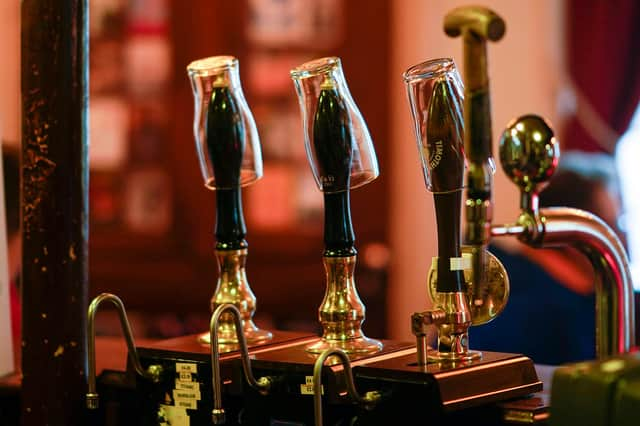Covid: Scale of the hospitality sector crisis is daunting – Scotsman comment


However, the hospitality industry – hotels, restaurants and bars – has clearly borne the brunt of its devastating effects, with unions now estimating that around 50,000 jobs have already been lost in Scotland and industry leaders warning that many businesses will not now break even until 2022 or perhaps 2023.
Advertisement
Hide AdAdvertisement
Hide AdWillie Macleod, of the trade body UK Hospitality, told them: “It’s fair to say the cities have absolutely been devastated by this, not just the hotels, but the bars and restaurants as well… The picture is pretty bleak.”
He said they expected hotel occupancy rates in Glasgow and Edinburgh to be between a quarter and a third of normal with the income in the first three months of next year “barely... enough to cover the cost of production of actually having a room lying empty”.
Alarmingly, Macleod said that forecasts of a sluggish recovery for the sector were "dependant” not just on Scotland and UK getting Covid under control, but the whole world. “Really we have to get it under control internationally before hospitality and tourism will begin to recover,” he added.
Not making a profit for one or two years will be devastating for many businesses, quite possibly terminal, with independent outlets likely to find this particularly tough.
And so, just as some restaurants have responded to the lockdown’s restrictions by providing a takeaway or delivery service, we the public should do our bit by trying to use such services even if it involves a break from our routine.
While Chancellor Rishi Sunak has extended the furlough scheme by a month until April next year, neither the Scottish nor the UK government can afford to provide endless support, so finding ways to allow customers to safely return should remain a priority.
We knew hospitality was struggling but the scale of job losses and the long-term effects are deeply worrying. And when the furlough scheme does end, we can only hope other sectors are not as badly hit and are able to recover more quickly.
A message from the Editor:
Thank you for reading this article. We're more reliant on your support than ever as the shift in consumer habits brought about by coronavirus impacts our advertisers.
If you haven't already, please consider supporting our trusted, fact-checked journalism by taking out a digital subscription.
Comments
Want to join the conversation? Please or to comment on this article.
